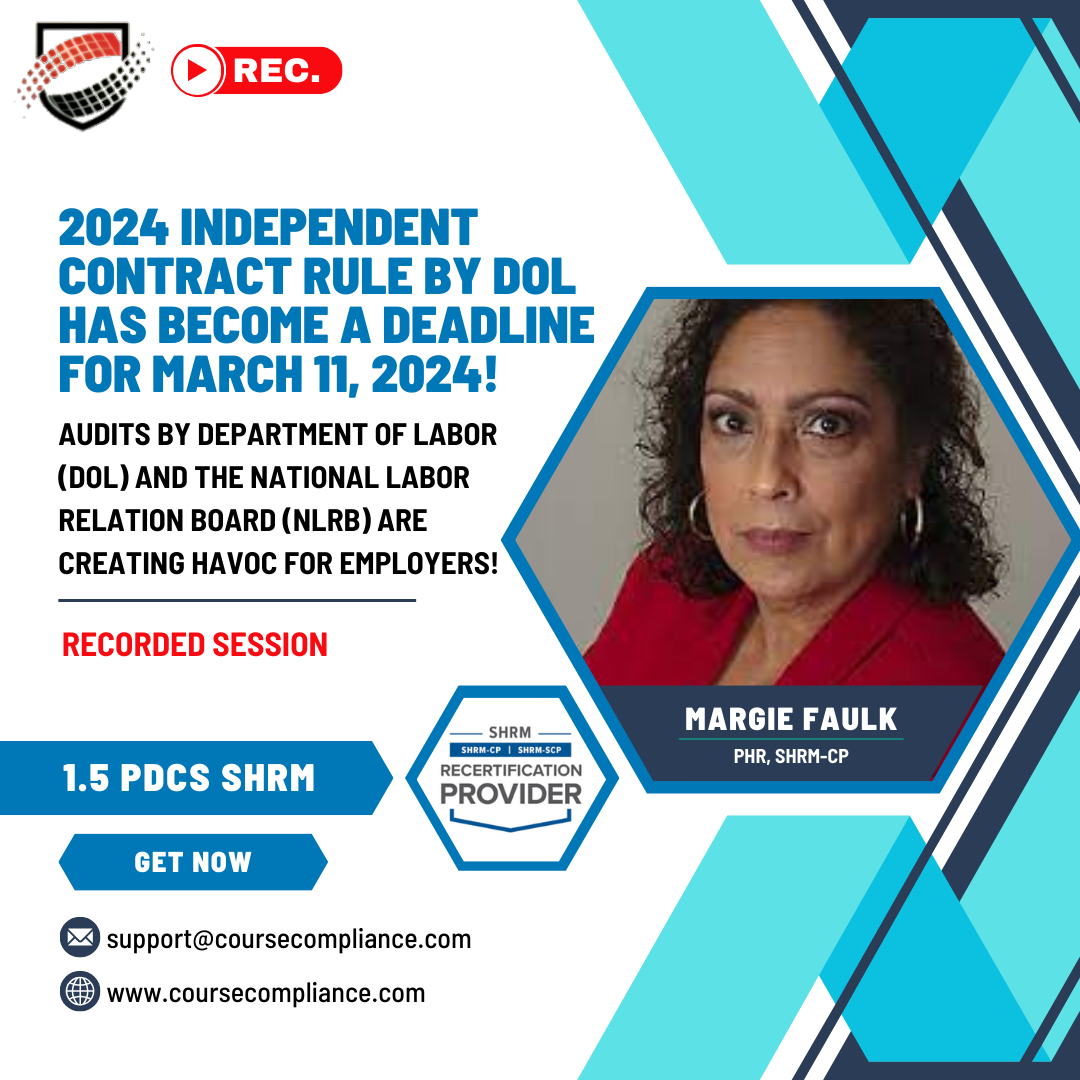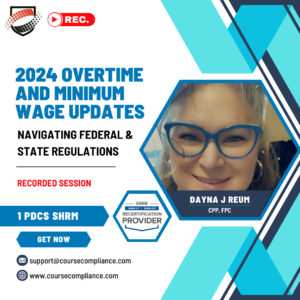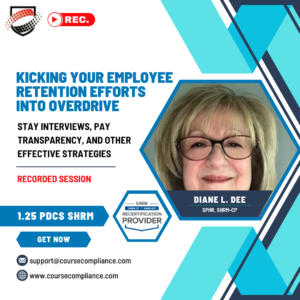Learn How Misclassifications Can be a Legal Nightmare for Employers!
The new independent contractor rule from the U.S. Department of Labor (DOL) could spark an increase in misclassification lawsuits and make businesses less likely to hire gig workers, according to some legal experts.
The final rule restores an earlier standard that required companies to weigh a variety of economic factors together to determine whether a worker is an employee or an independent contractor. It will take effect on March 11.
It should not be a strange test to employers. We’re back to where we were in the past. At the end of the day, it’s the courts that really have the power to make that determination about whether an employer misclassified a worker.
The new rule returns to a more employee-friendly standard, and it may usher in a wave of misclassification lawsuits under the Fair Labor Standards Act (FLSA).
The current rule prescribes a five-factor test to guide the analysis, two of which were designated as “core factors” carrying more weight:
1) nature and degree of control over the work and
2) the worker’s opportunity for profit or loss. As such, under the “core factor” test,
if these two factors point in the same direction – an independent contractor – then it is likely that the worker is properly classified as an independent contractor.
By contrast, the proposed six-factor totality test eschews any predetermined weighting. Rather, it requires that each factor be considered in light of the economic reality of the entire activity at issue. The six factors are:
- Opportunity for profit or loss depending on managerial skill
- Investments by the worker and employer
- Degree of permanence of the work relationship (including exclusivity)
- Nature and degree of control (i.e. scheduling, supervision, price setting, and ability to work for others)
- Extent to which the work performed is an integral part of the employer’s business
- Skill and business-like initiative
It is critical for Employers and professionals to make decisions to be compliant based on the criteria above.
Why one should attend the training:
Considering this heightened scrutiny and potential narrower legal standard, it is now more important than ever to evaluate how companies structure an independent contractor relationship. It is particularly important for employers to seek guidance from experienced counsel when developing and implementing policies related to working with independent contractors.
Areas will be covered during the Session:
- Learn how the Independent Contractor Rule will impact Employers and Independent Contractors
- Learn why it is confusing to determine and define the requirements for IC status.
- Learn about examples of employee vs Independent Contractors case studies.
- Learn how different this new rule is from the previous rule.
- Learn what the “proposed rules” include, and which proposal can make challenges for Employers and agents of employers like professionals involved in employee relations.
- Learn what the penalties are for violating classification regulations by the DOL, NLRB and IRS.
- Learn how the business communities are opposed to the new DOL Rule
- Learn what the best practices are when classifying employee vs independent contractors.
- Learn how long Employers have to put the new rule in place.
- Learn how Employers can effectively mitigate the proposed regulations.
Target audience:
- All Employers
- Business Owners
- Company Leadership
- Compliance professionals
- Payroll Administrators
- HR Professionals
- Managers/Supervisors
- Anyone Interested in Being Compliant with Current Regulations






Reviews
There are no reviews yet.